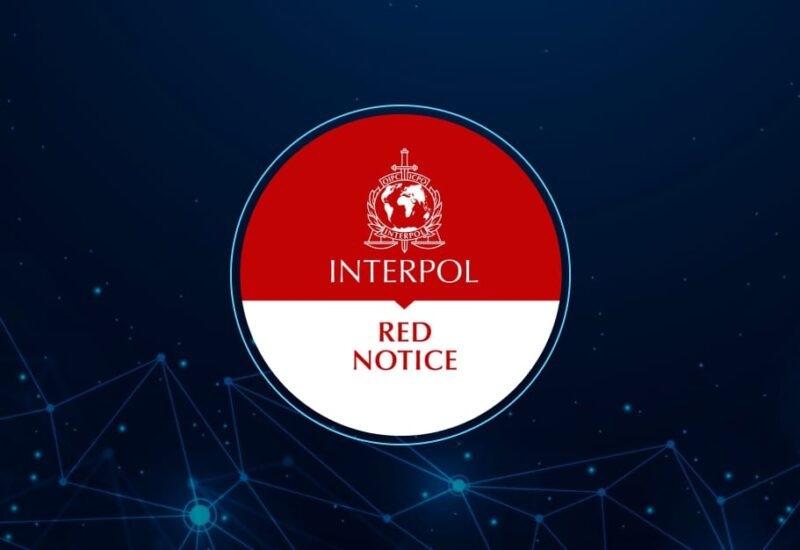Clarifying Money Laundering Accusations

Money laundering is the process by which funds from illicit activities are introduced into the legitimate financial system with the intent of concealing their unlawful origin. This crime is frequently committed by sophisticated criminals, including individuals involved in white-collar crimes, which involve financial crimes such as fraud, corruption, or embezzlement to generate and conceal illicit profits. White-collar criminals are often perceived as less violent compared to other types of offenders, but the consequences of their actions are profoundly damaging and far-reaching. These individuals commit financial fraud, undermine financial markets, and contribute to systemic corruption. Their role in the realm of money laundering is frequently subtle and well-concealed, rendering it equally pernicious and challenging to detect as that of more explicit criminal figures.
One of the primary methods for combating money laundering is the obligation placed on financial institutions, particularly banks, to report suspicious payment transactions. However, this regulatory measure can also result in legitimate payments being flagged as potentially suspicious, leading to unwarranted investigations. For example, large cash transactions, frequent transfers between accounts, or international wire transfers conducted for legitimate business purposes may cause individuals or companies to be erroneously scrutinized and suspected of involvement in money laundering offenses. Furthermore, individuals may find themselves falsely accused of money laundering due to fraudulent allegations, clerical errors, discrepancies in financial records, identity theft, or impersonation, as well as flaws in investigative procedures.
The risk of unjust accusations underscores the importance of a precise and well-regulated approach to financial investigations, where due process is adhered to, and individuals’ rights are safeguarded throughout the process. While the fight against money laundering is imperative for maintaining financial integrity and combating organized crime, the legal framework must also ensure that innocent parties are not unduly harmed by a misapplication of law or a failure in procedural safeguards.
The Role of Interpol in Tracking White-Collar Criminals and Money Laundering
In cases of money laundering linked to white-collar crime, Interpol plays a significant role in issuing Red Notices, which facilitate international cooperation for tracking and apprehending suspects. However, it is crucial to understand that a Red Notice does not imply guilt; it is not an arrest warrant and does not constitute definitive evidence of criminal activity. Money laundering cases often involve intricate financial transactions, including offshore accounts and international transfers, which can easily be misinterpreted, especially when legitimate business practices are involved. The common stereotype of white-collar criminals as sophisticated individuals exploiting legal loopholes often does not reflect the reality, where many of those accused are legitimate businesspeople or professionals wrongly caught in complex financial webs. Additionally, extradition requests based on Red Notices must meet strict legal criteria, and defense teams can argue that the offense in question may not even be classified as a crime under the laws of the requesting country, or that the activities fall into a legal gray area where prosecution is unwarranted.
The Complexities of Using Interpol’s Red Notice for White-Collar Crime
Although the Red Notice does not possess legal force, it serves as an international appeal for cooperation, requiring police forces to locate the identified individual. However, the arrest of a suspect, especially in cases involving sophisticated financial crimes such as money laundering, is far from straightforward. The process depends on a multitude of factors, both legal and diplomatic, and can be obstructed by the complexities inherent in the structure of global finance.
When a Red Notice is issued, authorities in the state where the suspect is believed to be located are required to evaluate the legal grounds for extradition. Nonetheless, extradition is not an effortless or automatic procedure. Several criteria must be satisfied before the requesting country is able to successfully obtain custody of the suspect. Among these, one of the most important is the principle of dual criminality, which requires that the alleged offense be recognized as a crime in both the requesting and requested states. In the case of white-collar crimes such as money laundering, the offense must not only be criminalized in both jurisdictions but must also meet the specific legal thresholds and requirements set by each country’s laws. If the suspect is charged with a crime that is not recognized in the requested country, extradition may be denied, even if the individual is wanted for prosecution in another jurisdiction.
In addition to dual criminality, the conditions of detention and trial in the requesting country must be thoroughly examined. The defense may argue that the accused would face inhumane treatment, denial of a fair trial, or disproportionate punishment if extradited. These concerns are particularly relevant in cases involving individuals accused of white-collar crimes, where the legal procedures can be prolonged and the potential for severe punishment can be disproportionate to the nature of the crime.
Criminals facing money laundering charges face personal and legal consequences.
Being sought for money laundering, especially with the involvement of Interpol, can have significant legal and personal consequences. A Red Notice can lead to arrest in foreign jurisdictions, asset seizure, and, perhaps most importantly, public exposure of the individual’s alleged criminal activities. This exposure can have far-reaching effects, especially for people with prominent social, economic, or political standing. The impact on one’s reputation can be significant, and in certain instances, it can have a lasting impact on both their personal and professional trajectory. The disclosure of an individual’s involvement in criminal matters, particularly when amplified by international law enforcement agencies, can cause irreparable damage to one’s career, social relations, and public image. Beyond reputational damage, the legal penalties associated with money laundering charges are severe. Individuals convicted of such offenses can face substantial prison sentences, fines, and the confiscation of assets linked to illicit activities. In certain cases, businesses and individuals linked to the accused may also face civil suits, regulatory investigations, or dissolution of business operations. This creates a ripple effect that extends into the broader community, potentially leading to economic destabilization, loss of investor confidence, and damage to entire industries.
From a legal perspective, the consequences of being accused of money laundering are multifaceted. Interpol’s role in issuing Red Notices is central to the international tracking and apprehension of suspects. However, the process of arrest and extradition is often complicated, as different legal systems across jurisdictions must align to facilitate cooperation. For an individual facing such charges, the legal journey can be complex and protracted, as defense teams must navigate the varied and often conflicting laws of different countries involved in the case. The potential for legal challenges is significant, as extradition does not occur automatically, and the accused may attempt to contest the charges on a number of legal grounds.
The impact of these charges is not limited to the individual accused. The ripple effect of such investigations can affect many layers of the economy, particularly in cases where the accused holds significant influence or control over financial institutions, businesses, or markets. Legal consequences extend to partners, employees, and other stakeholders, who may be impacted by the investigation or prosecution of their associates. Furthermore, the complexity of such cases often leads to extended litigation, requiring thorough legal examination and strategic defense to challenge the accusations and mitigate potential legal penalties.
Given the seriousness of these charges and the extensive legal implications, having expert legal counsel is crucial. This may involve challenging the validity of the Red Notice, scrutinizing evidence, and contesting the extradition process. The complexity of international legal systems and the resources available to those facing such charges necessitate a well-informed and effective defense to safeguard personal liberties and minimize the impact of potential legal repercussions.

